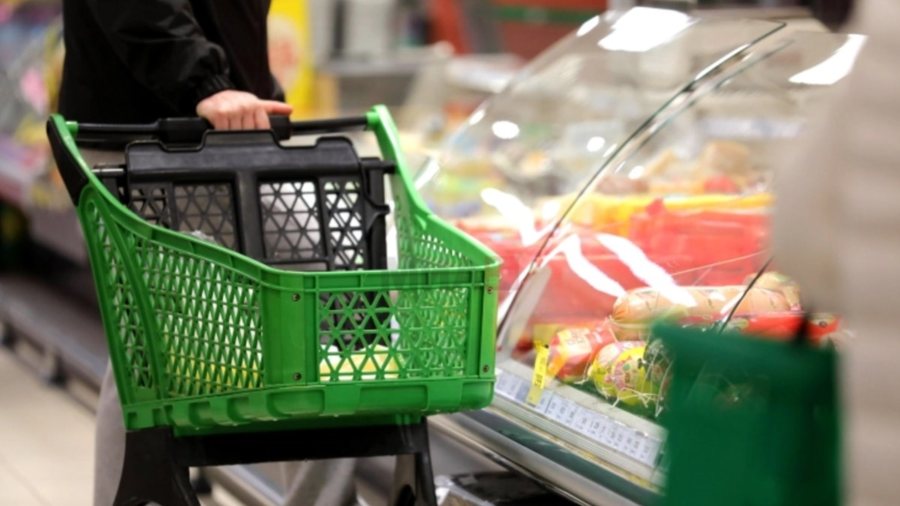
The Directorate of Public Revenue (DAP) of North Macedonia has announced that, according to data from the transaction recording system (GPRS), on January 31 there was a 46.29 percent decrease in daily turnover in the eight largest supermarket chains, compared to the previous day.
DAP reported that on Friday a turnover of 114,293,367 denars (1.83 million euros) was recorded, while on Thursday, January 30, the turnover was 212,782,151 denars (3.4 million euros).
“According to the comparative analysis of the data, on January 31, 2025, compared to January 24, 2025, a 46.59 percent decrease in total turnover was recorded in the eight largest supermarket chains,” the Directorate of Public Revenue stated.
DAP announced that it will continue with such monitoring and analysis and will publish all data that will have an impact on the country's economy.
This drop in turnover is linked to the citizens' boycott of supermarkets,
in protest against the increase in food prices.
On Friday, most citizens in North Macedonia avoided shopping all day in large supermarket chains, while some others limited their spending to basic products.
Macedonian Prime Minister Hristijan Mickoski said on Saturday that inspectors are continuing inspections in all major supermarkets in the country.
"Yes, everyone has gone out into the field. More information will be available on Monday. I can say that we are in almost all major supermarkets and a detailed analysis is being carried out," Mickoski told reporters.
The government also plans to reduce parafiscal taxes, which, according to Mickoski, will have a positive impact on reducing prices.
The boycott initiative began on January 28. Initially, the initiative was launched in Croatia, on January 24, and resulted in a drop of more than 50 percent in sales across the country.
Similar calls for a supermarket boycott on January 31 were also made in Serbia, Montenegro, Bosnia and Herzegovina, and Slovenia.
In North Macedonia, pamphlets calling for "Boycott Markets" were distributed, while groups were created on social media calling on citizens not to buy products for at least one day.
The authorities in this country expressed support for the boycott of stores.
“We support the citizens in boycotting, above all, the markets that, in recent years, have increased the prices of products extremely without any economic logic,” said the Minister of Economy and Labor of North Macedonia, Besar Durmishi.
On the other hand, the Macedonian and Albanian opposition accused the Government of being responsible for regulating prices.
“We are really concerned about the lack of interest and commitment of the Government to take measures. I would even say with some cynicism, they support the citizens to protest, while in fact the citizens’ protest, in addition to the high prices and against the markets, should be directed at the Government, because it is responsible for setting prices,” said Venko Filipçe, chairman of the opposition Social Democratic League (LSDM).
The Albanian party, the Democratic Union for Integration (DUI), demanded the resignation of the Minister of Economy and Labor, Besar Durmishi.
"Instead of taking measures to curb inflation, stop price increases and protect the living standards of citizens, the Minister of Economy is making empty propaganda and asking citizens to do what is the government's duty. This government has lost all legitimacy and any connection to reality," the DUI statement said on January 29.
In North Macedonia, the minimum wage is 22,567 denars (367 euros). While the minimum spending basket for a four-member family in January reached 63,252 denars (1,027 euros).
In Montenegro, inflation from 2021 to 2024 was 30.5 percent, while food prices rose by up to 41 percent, according to data from the Statistical Office in this country.
On the other hand, retail chains, judging by tax returns, recorded a 40 to 50 percent increase in turnover in 2023, compared to 2021.
In Albania, no similar calls have been made, while in Kosovo on Saturday, several photos began circulating on social networks with the caption "Kosovo boycotts, February 1-7."
It is not known who is behind the call.
Selatin Kaçaniku from the "Consumer" organization told Radio Television of Kosovo (RTK) on January 31 that Kosovo could join the boycott initiative if there is no movement among parties, businesses, and especially the Retailers Association, by February 10.
Almost all items sold in markets in Kosovo have become significantly more expensive from 2020 to 2024, based on data from the Kosovo Agency of Statistics. REL (A2 Televizion)











